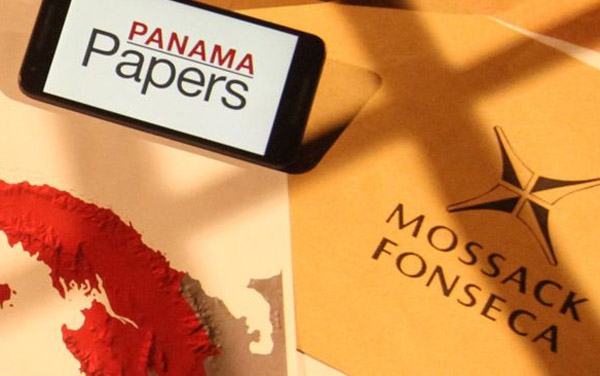Joe Kirwin at Bloomberg writes of loopholes that exist that lawyers took advantage of.
Switzerland’s lack of regulatory oversight for lawyers, as well as loopholes that allow them to ignore due-diligence rules, came under intense scrutiny at a European Parliament hearing probing Switzerland’s role in the year-old Panama Papers revelations.
At the same time, leading French banks Societe General and BNP Paribas faced criticism for the roles their Luxembourg subsidiaries played as intermediaries in establishing some of the more than 200,000 shell companies revealed by the Panama Papers leaks.
With leading Swiss banks UBS AG and Credit Suisse Group AG no-shows at the hearing, European parliamentarians were told Switzerland’s lack of compliance with Financial Action Task Force regulations covering know-your-client (KYC) rules for company ownership is the most important reason the country had more links to Panama Papers shell companies than any other European country.
“A Swiss lawyer does not have to abide by due diligence rules when it acts as an intermediary in setting up a company that has directors as nominal beneficiaries owners of a company,” Swiss journalist Oliver Zihlmann told the panel. Probes into the Panama Papers’ leaked documents revealed that 90 percent of Swiss lawyers used this loophole when they incorporated shell companies with Mossack Fonseca & Co., he said.
Loophole Still Exists
“This is a loophole that still exits today,” said Zihlmann. He also noted that many of the shell companies Swiss lawyers helped set up didn’t use Swiss banks. Had Swiss banks been involved, they would have been required to employ KYC laws that would have required stricter scrutiny of the beneficial owners.
Rebutting Zihlmann’s accusations was Geneva-based criminal prosecutor Jean-Bernard Schmid, who downplayed the role of Swiss lawyers in the Panama Papers and insisted legal constraints make it difficult to pursue illegal money laundering cases with Swiss links to foreign countries.
“Most of the facts revealed by the Panama Papers were known to us,” Schmid said. “When relevant, investigations had already been opened. The barriers we face in pursuing these investigations include technical difficulties when coordinating different judicial systems and cross-border investigations. This includes difficulties in identifying beneficial owners.”
Laws, Intermediaries
Peter Lutz, president of the Swiss Bar Association’s and Swiss Notary Association’s Self-Regulatory Organization dealing with money laundering, insisted Switzerland has robust criminal laws against money laundering, to which the legal profession must comply.
‘This includes special laws applicable to lawyers acting as intermediaries,” Lutz said. He also said Swiss lawyers are no more responsible for aiding and abetting offshore companies than internet service providers and postal carriers.
Following his testimony, Lutz was consistently challenged by parliamentarians who insisted that despite Swiss laws, the legal profession in Switzerland lacks oversight to ensure they are being applied.
“The lack of oversight of Swiss lawyers is a glaring problem,” said Paul Tang, a Dutch parliamentarian from the Socialists and Democrats political group.
During the the hearing, Parliament members criticized the absence of UBS and Credit Suisse. Some insisted the two banks should lose their right to enter the European Parliament to engage in lobbying activities.
Credit Suisse Letter
Credit Suisse insisted in a letter sent to the committee—a copy of which was obtained by Bloomberg BNA—that when it comes to private company accounts “where the account holder is not the beneficial owner of the assets, evidence has to be provided with regard to the identity of third-party beneficial owners holding interests in such an account above minimum regulatory thresholds, subject to applicable anti-money laundering laws.”
Speaking earlier in the hearing, Patrick Suet, chairman of the Luxembourg-based Societe General Bank & Trust, told the European Parliament committee the bank has closed all accounts with links to Mossack Fonseca. “Companies that had been set up at the request of our customers no longer exist or are no longer administered by us,” Suet said.
BNP Paribas official Sylvie David-Chino, who heads the financial institution’s global compliance division, testified that the largest bank in France doesn’t advise its clients on the creation or administration of offshore companies. “We have ceased activity related to this activity,” David-Chino said.
